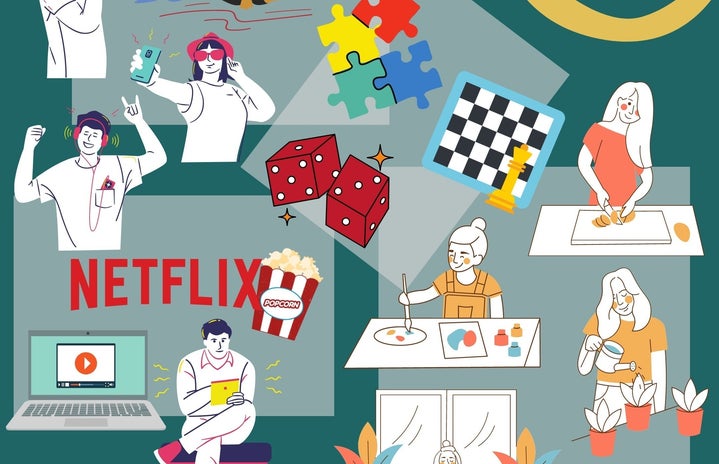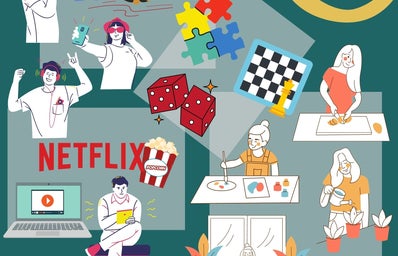Edited by: Kavya Mittal
Green squares, yellow squares, and black squares. I always thought it was a pattern game – some match the squares or odd one out type of thing. It was on Instagram stories, on group chats, even my professors brought it up in class for discussion. So eventually, the FOMO kicked in and I played my first game of Wordle. The word was ‘PAUSE’ and I took five tries to get it. Watching the tiles change to green got me super excited and I began to understand why someone would play it every day. The next hour, I made my mother and boyfriend guess the word as well and saw the same look of triumph I probably had – that was when I realised it meant just as much to them as it did to me. I now share the love for online games with the two most important people in my life and 27 days with a 100% streak later, I look just as forward to guessing a five-letter word as I did on the first day.
I wake up to hearing breakfast table discussions about thoughts on today’s word and the number of times it took for each member of my family to guess. I spend my break between classes trying to solve the NYT’s mini crossword and spelling bee with my Ashoka friends. In the evening, I play sudoku and a round of ludo with my parents, which for some reason I always lose, and as soon as it hits 12, I’m playing Worlde, Quordle, and Nerdle with my boyfriend. This is my routine now, an average day in my life. More than the personal satisfaction, it’s the feeling of connectedness. I love giving my mom weird clues and actions to guess the word, and watching my boyfriend brainstorm and tell me the probabilities while guessing vowel heavy words and of course, people’s guess grid on their Instagram stories. We’re connected because we try and guess the same five-letter word in our own different ways. And for some strange reason, that’s enough.
There are a lot of reasons why something so minimal became so popular. But nothing beats Douglas Gentile’s explanation of Wordle being the ABC of human wants– “A is autonomy. We want to feel like we’re in control of our lives, B is belongingness. We want to feel like we’re connected to other people, and the C is competence. We like feeling [we’re] good at something.” Wordle is a perfect fit for all three. There’s a simple joy in one puzzle a day. It’s not overwhelming, it’s not unsatisfactory. It leaves you wanting more but not immediately. Wordle also humbles me. I cannot tell you how many times I have gotten green letters in the first or second guess but still taken 5 tries to guess the word. It reminds me that my English minor side is not as strong as it should be, considering the words I guess are either fruits, objects I see around me, or words I haven’t used since my 10th-grade board exam. It shows me there are words I have no idea about but can still guess by a process of elimination (I’m still angry about caulk) – Wordle stops me from second-guessing myself. Even one yellow tile makes me feel like I’ve accomplished something and lastly, I sleep better with a little ego boost/self pat on the back at the end of the day.
When I was telling someone about this, they replied with something like “oh it’s just because of the pandemic, when that goes away, so will the craze behind stuff like this.” I thought about this for a long time but came to the conclusion that for me personally, this way of bonding with people will never die down. The game might change but playing it with people I love, will not. I remember playing Among Us and Skibbl in August/September last year. My friends and I outgrew that but we still talk about it as if it happened yesterday. Today it’s Wordle, tomorrow it might be something else but that’s okay! That’s what makes it fun. But even if it’s not something for everyone else, I’m sure my mother will keep defeating me at our constant, Ludo, even if it’s just both of us being the only two people who play the game.
These games are my bite-sized happiness. My guilt-free indulgence. A feeling of being part of something greater than a mundane daily routine. With so much happening around us, if something can distract you even for a few minutes, you deserve to take a break with it and acknowledge its impact on you and your mental health. As long as you remember Wordle v-i-v-i-d-ly and store it in your treasure t-r-o-v-e of memories, I’m sure it’s served its purpose.


